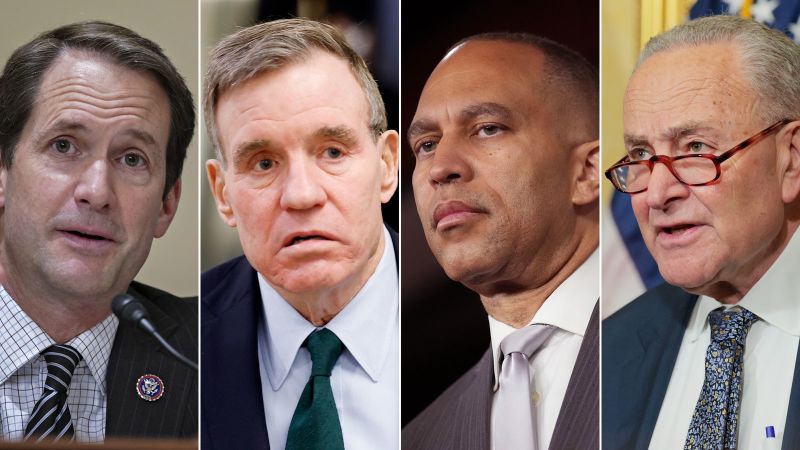President Trump’s decision to strike Iranian nuclear facilities sparked controversy as it emerged that his administration had briefed top congressional Republicans beforehand but left Democrats uninformed until after the bombs fell. House Speaker Mike Johnson and Senate Majority Leader John Thune were among those informed ahead of time, while Senate Minority Leader Chuck Schumer and House Minority Leader Hakeem Jeffries were only notified shortly before the public announcement. The aftermath saw a clear partisan divide, with Republicans supporting Trump’s actions and Democrats condemning them, demanding classified briefings and questioning the lack of congressional approval. The strikes have intensified the debate over the limits of the President’s war powers, with Congress expected to vote on the matter. Democrats criticized Trump for acting unilaterally and failing to consult Congress, while some Republicans raised concerns over the constitutional legality of the strikes. The situation remains tense, with ongoing calls for transparency, strategic clarity, and protection of American interests in the region. As the political fallout unfolds, the divide over Trump’s actions underscores the challenges and complexities of US foreign policy decision-making.
“Exclusive: Trump Administration’s Secret Briefing on Iran Strikes Revealed to Top Republicans, Democrats Left in the Dark | CNN Politics”
June 21, 2025

From CNN News
This site is supported by our readers, so if you’re able to help, consider becoming a paid supporter. https://www.patreon.com/YUGENEWS
